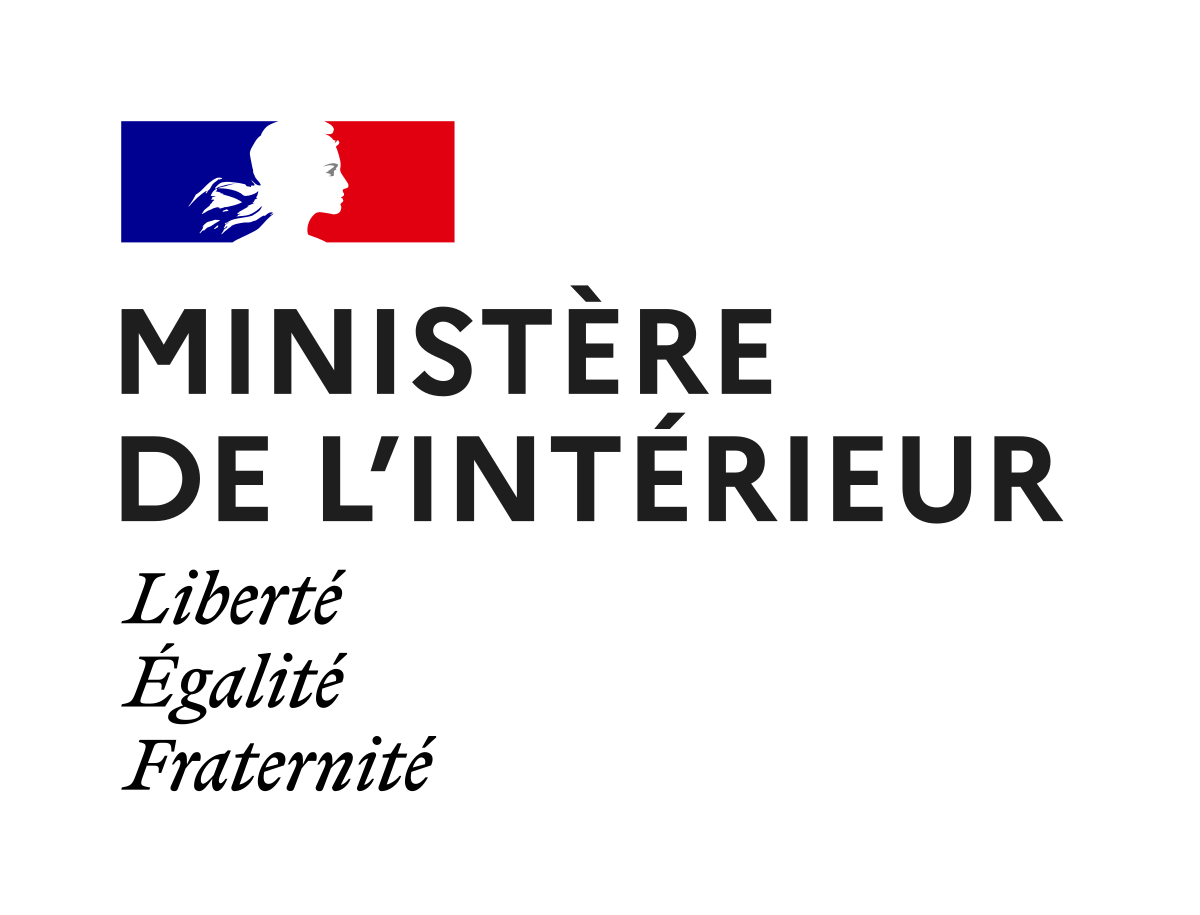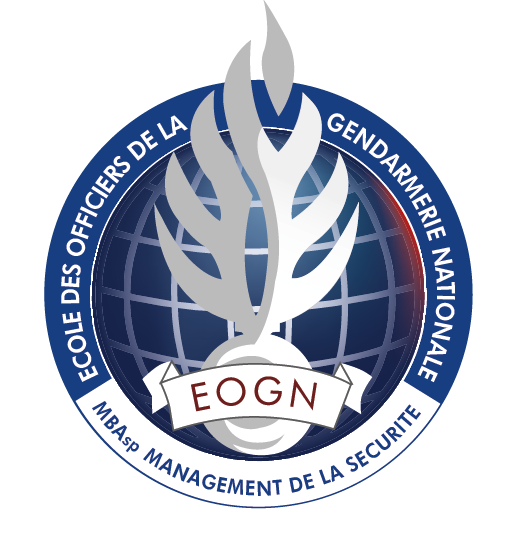Teaching methods
This unique training course is delivered by internationally renowned experts and supplemented by the know-how of elite units from the gendarmerie. As an attendee, you will improve your skills and strengthen your leadership qualities while refining your knowledge in terms of security strategy. The entire course is devised to facilitate and optimise exchanges between public and private actors from the security/safety sector, with a common objective: to work in synergy and develop a network of leading professionals in the sector to better apprehend the new risks that weigh upon modern organisations.
In order to best reconcile with your professional and personal agendas, consult the provisional schedule now and study your possibilities of following the training in 1 year (2022-2023) or of spreading your schooling over 2 years (2022-2024) .
Dissertation topics
These memoirs are available for consultation, subject to authorisation, in the documentation department of the EOGN Research Center (CREOGN), located in Melun. The request should be made to: dd.creogn.eogn@gendarmerie.interieur.gouv.fr or 01.64.14.54.85 The request should be made to: dd.creogn.eogn@gendarmerie.interieur.gouv.fr or 01.64.14.54.85
Public security
- Intelligence, a security issue at the heart of the strategy of the French State and of business in the digital age, through the example of contested development projects.
- Densification and optimization of the intervener within the internal security forces, a managerial path.
- The contribution of the citizen as an intrinsic actor of internal security.
- Does the polymorphous evolution of the threat call into question the current concepts of perimeter protection.
- What strategy for organizing internal security forces within metropolitan areas?
- The security challenges of a military port open onto a harbour: the example of Toulon.
- The Montagne d’Or project: security and safety issues in a territory in crisis.
- The Naval Action Force faced with the threat of drones o Maritime issues in the Eastern Mediterranean facing Turkey.
- Evolution of aviation security in the face of new threats.
- Intelligence and value creation.
- Control of flows: key point of the public order maneuver.
- State of play of EI in France: challenges and perspectives following the Covid-19 crisis.
- The police in the police: News and perspectives of the monopoly of legitimate physical violence by the public authorities, in France, at the beginning of the 21st century.
gendarmerie
- Analysis of the use of European funding in the gendarmerie: what issues and what development strategy for a better return for the security of the populations.
- The “mobile camera” – A practical case of video protection for law enforcement and other surveillance agents.
- Mobility and territories of seasonal influx: what close relationship should the gendarmerie build with tourism and security actors in coastal tourist areas?
- Mountain territories: how can the gendarmerie anticipate new security risks and innovate in its relationship with all mountain stakeholders?
- “Coping”: resilience at the heart of training issues within the national gendarmerie.
- Proximity between the gendarmerie and the population: Reactivating social regulation mechanisms in peri-urban areas.
- The partnership with National Education, how the National Gendarmerie declines a security offer.
- The robustness of the gendarme put to the test by his societal environment.
- The creation of GIGN branches as part of the national intervention plan and their rise to power as a regional player.
- The fight against domestic violence: example of a multi-partner public security policy.
- Augmented reality in the gendarmerie (towards an augmented gendarme).
- Techniques for optimizing potential and robustness in the gendarmerie: inventory, challenges and perspective.
- Securing the wine sector: a challenge for the gendarmerie.
- Rights and obligations of reservists: the special case of the gendarmerie.
- The gendarmerie faced with the challenges of new territories.
- Road safety units facing the challenges of mobility safety.
- The collection of intelligence in the gendarmerie: in the DNA of the CNE gendarme.
- The rise of digital proximity within the GN, issues and perspectives.
- The involvement of the Armament Gendarmerie in the “prevention function” for the DGA; positioning in a transverse environment with multiple stakeholders.
- The NG’s action in the face of climatic events.
- The means of investigation and criminal procedure in the fight against drug trafficking in France.
- Response Forces (RF) and Information Systems (IS): from the age of the useful to the age of the indispensable.
sensitive sites and events
- Crisis management in a theme park.
- Safety and security within the assistance companies.
- Improbability of the unacceptable: the CBRN risk as an example of risk management with a low probability of occurrence and high impact.
- Managing new risks in public/private partnerships of sensitive sites.
- The challenges of economic intelligence in the French luxury industry.
- Security and safety around professional soccer events in France: a co-production of public / private security in the face of a protean threat.
- Assistance and medical repatriation: security issues.
- Implementation and standardization of security on several remote industrial sites.
Security of a complex and evolving site. - WATER: safety and crisis management.
- Security within cultural ERP.
- Security Risk Assessment (SRA) in the oil sector in connection with the supply chain.
- The development of a safety culture in the fire and rescue services: example of the SDIS-78.
- Safety and security, comparative analysis of stadium concerts (Indochine Tour) and the 2023 Rugby World Cup and 2024 Olympics.
international
- The protection and safety of employees abroad, crossed perspectives.
- Security cooperation between France and Spain in the face of terrorism.
- Challenges and issues of the proliferation of private security companies in Mali.
- International hubs and mobility security: the example of ADP sites.
- International standardization and security strategies: towards standardization?
- The company and the protection of business travelers and expatriates.
- The expansion of terrorism from the Sahel to the coastal countries of ECOWAS, the case of Côte d’Ivoire.
- Security, a major player in the management of a pandemic? Case of an international company in the energy sector.
- Integration and synergy of the militia component within the military police engagement commands (Switzerland).
- Maritime issues in the Eastern Mediterranean facing Turkey.
- Diplomatic cooperation in crisis management.
- Outsourced security management in an international urban passenger transport network.
- Diplomacy in countries at war or in crisis: analysis and perspectives of the French security model for our diplomatic representations abroad.
cyber
- Connected objects: challenges to be met, opportunities to be seized (Focus on the judicial police of tomorrow).
- Contributions of automated systems and AI in the defense of sensitive state facilities.
- Geopolitics of the Internet: interests and limits of public/private collaboration.
- What are the consequences for humans of the arrival of AI in cyber security.
- Cyber attacks, a new weapon of destabilization in the contemporary world.
- AI a new power base (analysis of AI through the concept of power and study of the Chinese case).
- AI for homeland security forces: what future for autonomous robots.
- How to improve the efficiency of regulatory training in air transport security.
- The Army and national homeland defense after the 2015 attacks.
- General Data Protection Regulation Security of sensitive transport: organization and control.
- Is AI taking us towards strategic and economic e-intelligence.
- The rise of digital extremism, its consequences in cyberspace and its impact on businesses and their economies.
- Cyber security in cash-in-transit companies. Analyze the impact of a potential cyber-attack and develop a resilient cyber environment.
- Cyber security of smart-cities.
- The rise of digital tools in the NG: from changing daily practices to organizing the overall security response.
- Optimizing the fight against cybercrime: balance between national sovereignty and cooperation of private actors.
- Contribution of social networks in the gendarmerie to the production of security.
- The integration of big data technologies for the benefit of road safety.
- How to “market” cyber security in companies (how to influence corporate strategy, how to get all users, managers and partners to adopt a cyber security approach).
- Faced with the increase and diversification of cyberattacks, how can we guarantee the security of new uses linked to the Cloud?
the place of information protection in Security. - Cyber attack in the hospital environment and its consequences.
management / finance
- Analysis of the success factors of crisis management interactions.
- Religious radicalization in the workplace.
- The evolution of global security concepts in the enterprise in a society undergoing digital transformation.
- Intelligence management in crisis management.
- Towards a redefinition of the notion of professional secrecy in the face of new security issues.
- Ethics and practice of neutrality in the company: the army a model to follow?
- Challenges and perspectives of the regulation of private security activities in France.
- Shadow Banking – Finance from the shadows by men and women.
- Creation of a security department within a large construction group.
- Data Protection Officer (DPO), a key position in the company.
- From audit to labeling: which measures are necessary and efficient for a company?
- Human resources management in private security in France.
- The fight against the socio-economic consequences of incivilities in the retail field.
- Global security on a daily basis. Reality of the rapprochement between actors of the security continuum: the example of armed agents.
- The mastery of social networks: a major challenge for tomorrow’s security.
- How to organize and implement resilience within a financial institution?
- The security of French VSEs and associations: a national imperative.
- Organizational resilience in the financial sector, or how cybersecurity is becoming a sovereign function.
- “The means of fighting, state or not, against disinformation and manipulation of opinion in the French information space.
- The role of the nurse in intelligence, developing a culture of safety in the paramedical environment.
terrorism
- Protection of private security guards against the terrorist threat.
- Islamic propaganda at the time of the fall of the caliphate.
- Soft-target: protecting vulnerable targets from the terrorist threat.
- France faced with new terrorist threats: response of the Gendarmerie.
- Impact of terrorism on French companies.
- The challenge of criminal intelligence in the fight against serial phenomena.
- SAIVs facing the terrorist threat: the example of the Nuclear sub-sector.
- Changing patterns of jihadist radicalization: the example of France.
- International cooperation in the fight against terrorism: disparities, strategy, specificities and challenges.
- How can an energy operator fight against radicalization (religious, ideological) at a time when Islamists are conquering Afghanistan?
management / finance
These memoirs are available for consultation, subject to the author’s authorization, at the documentation department of the EOGN Research Center (CREOGN), located in Melun. The request is to be made to : dd.creogn.eogn@gendarmerie.interieur.gouv.fr or to 01.64.14.54.85
Academic training
Evaluation methods: Individual group work; Individual table-top exams; Group orals; Individual and group worksheets.
International security environment
This module, directed by Professor Pascal CHAIGNEAU, deals with current issues in geopolitics, the organization of powers in the contemporary world, and international law enforcement. You will also study the state of conflicts, security issues, strategic changes and factors of influence and crisis.
Risk management
Directed by Professor Jean-Louis SCARINGELLA, this course aims to acquire the tools and concepts necessary to understand the strategy of any organization, from the perspective of economic intelligence, country risk, financial issues, and crisis communication.
Contemporary security challenges
Led by lecturer Rémy FÉVRIER, this module deals with the state of criminal and terrorist phenomena and economic and financial delinquency, taking into account the geostrategic component of digital risks.
Actors, issues and problems of internal security
Actors, issues and problems of internal security
Directed by Frédéric DEBOVE, this module gives you the keys to understanding the co-production of security, through the study of the national and international legal framework, the criminal responsibility of the company manager, the actors of internal security, the stakes, the problems and the interdepartmental environment of internal security.
Management
Directed by Professor Véronique CHANUT, this module gives you the keys to evolve as an operational and efficient manager, through management techniques and tools, new managerial practices and methods for leading change.
E-risks
Led by Professor David NACCACHE, this module deals with the foundations of computer security and the major issues of the 21st century in terms of cybercrime, security of payment means and systems, security of communication infrastructures and cyber physics. It is also a question of studying the various expert opinions on the criminal and civil levels and in matters of information systems.
Operational experience
This part of the training consists in involving you in real situations by making you live the best of the field experience of the elite units of the National Gendarmerie and by opening the doors of large private companies positioning the security/safety function at the heart of their strategy.
Evaluation methods: Case studies; group worksheets.
KNOW YOURSELF, ANTICIPATE
>> Discover examples of structural and process organizations in the public and private sectors:
- integration course: developing leadership
- departmental gendarmerie
- mobile gendarmerie
safety of a large international group - securing a major public site
- security audit
PREVENT, DISSUADE
>> Discover how to take into account a particular environment and threats:
- nuclear security and safety
- port safety and security
- airport safety and security
- cyber security and safety
- security and safety of expatriates and overseas locations
- strategic intelligence and security of intangible assets
- organized crime and business
(SEE) PROTECT
- risk analysis and management tools
- monitoring and its tools
- security accounting and finance
- media-training and knowledge of the press
INTERVENTION
- The Gendarmerie and large-scale crises
- Responding to physical aggression
- High intensity mission: Marine special forces
- Crisis management exercise




